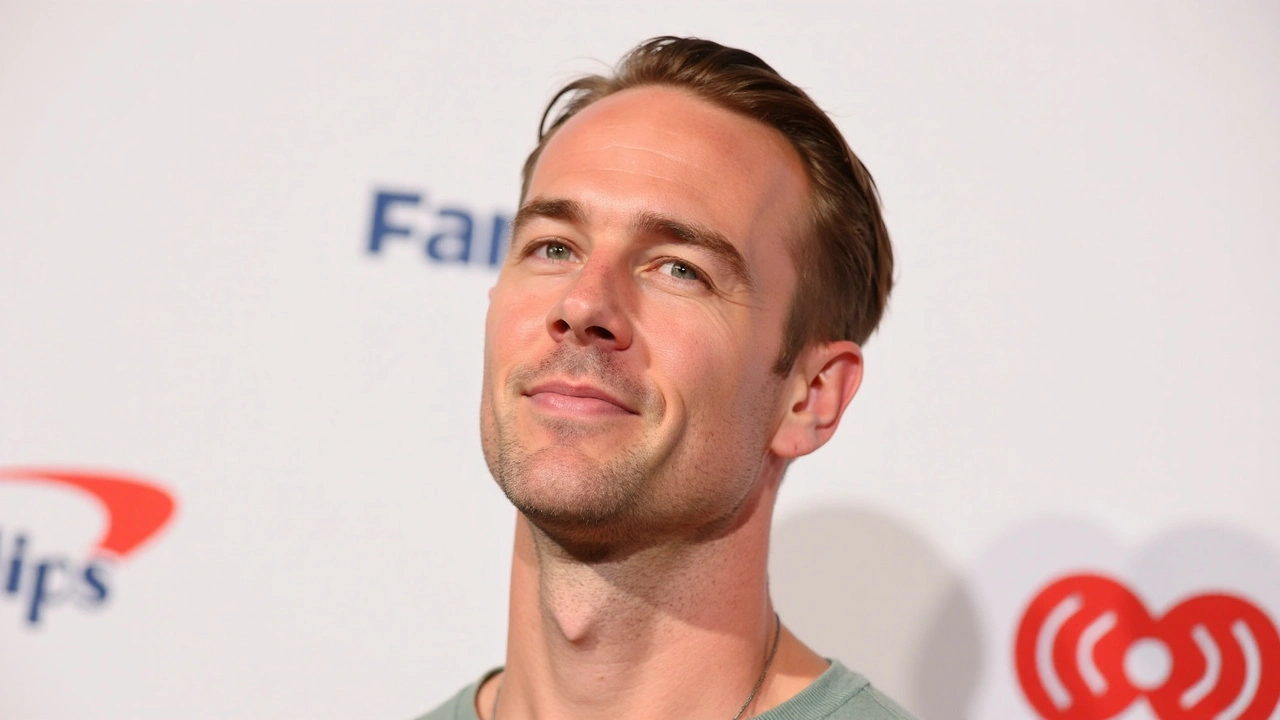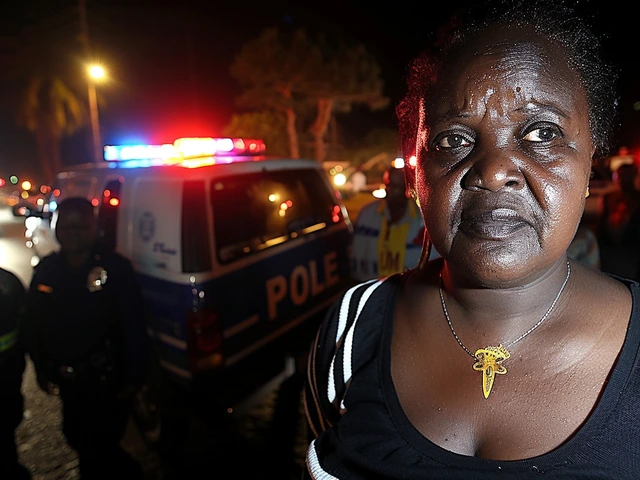The Rising Challenge of Colorectal Cancer in Young Adults
The diagnosis of James Van Der Beek with colorectal cancer at the age of forty-seven has echoed through both the celebrity and medical communities, drawing attention to a worrying health trend. Best known for his unforgettable role in 'Dawson's Creek,' Van Der Beek now finds himself navigating the complexities of this disease, bringing the broader conversation into the limelight. Such diagnoses at a relatively young age are becoming more frequent, a situation prompting urgent discussion among health experts and the general public alike. The American Cancer Society reports that colorectal cancer has become the leading cause of cancer-related deaths in men under 50, and it stands as the second leading cause for women within the same age bracket. This increase is startling, especially against the backdrop of decreasing incidences among older adults over 55.
Understanding the Causes
Why are younger adults becoming more susceptible to a disease typically associated with older age? The answers are not yet fully concrete, but researchers suspect that lifestyle factors may significantly contribute. The modern lifestyle, often characterized by prolonged periods of inactivity, excessive weight gain, smoking, and high alcohol consumption, is linked to various health issues. Diets consisting of high amounts of processed meat while lacking in fiber could also play an influential role. While these factors are often considered, more research is needed to establish a direct correlation. Regardless of the exact causes, the urgency for awareness and preventive measures is clear.
The Symptom Spectrum and Importance of Early Detection
One of the most insidious aspects of colorectal cancer is the potential absence of symptoms, especially in the disease's early stages. When present, symptoms might include abdominal discomfort, unexplained weight loss, changes in bowel habits like diarrhea or constipation, or even blood in the stool. Such vague symptoms can often be dismissed or misinterpreted as less severe issues, underscoring the vital role of regular screenings. The Centers for Disease Control and Prevention (CDC) now recommend that screenings begin at the age of 45, rather than the previous threshold of 50, especially for individuals with a family history of colorectal cancer. This adjustment in screening guidelines is a response to the uptick in cases among younger demographics.
The Treatment Journey
Treatment for colorectal cancer can vary widely, hinging heavily on the disease's stage and the individual's health situation. Common treatment options include chemotherapy, radiation, surgery, and sometimes immunotherapy, which harnesses the body's immune system to combat cancer cells. The road through treatment is often arduous, demanding both physical and emotional resilience from patients and their families. James Van Der Beek, though private about his ordeal, has shared that his journey involves a deep reliance on familial support.
Public Figures Sparking Awareness
The public revelation of a cancer diagnosis by a figure like Van Der Beek serves as a powerful tool for awareness. Public figures have the unique ability to shed light on health issues and mobilize community action in a way that health campaigns sometimes fail to achieve. By sharing his story, Van Der Beek not only emphasizes the personal aspects of battling such a disease but also magnifies the urgent public health issue of rising colorectal cancer rates among younger populations. His challenge becomes a shared narrative, inspiring vigilance and proactivity in health screenings.
Moving Forward: The Path to Prevention
The increase in colorectal cancer among younger adults calls for an amplified focus on prevention, education, and lifestyle modifications. Encouraging a society that prioritizes health could mean advocating for less sedentary lifestyles, promoting diets rich in fruits, vegetables, and whole grains, and reducing the community's reliance on processed foods. Public health initiatives can play a critical role in disseminating knowledge and breaking down barriers to access essential cancer screenings. While James Van Der Beek's diagnosis is a deeply personal matter, it is also part of a larger mosaic that calls for reflection and action against a growing health concern.







Mayur Sutar
November 5, 2024 AT 19:06It's really striking how the statistics are shifting for younger adults. The rise in colorectal cases reminds us that lifestyle choices matter a lot. Simple steps like moving more and adding fiber can make a real difference. Early screening shouldn't be seen as optional any more. Stay hopeful and keep the conversation alive.
Nancy Ortiz
November 6, 2024 AT 14:33Ah, the classic "celebrity effect"-a perfect case study for health communication theory. When a high‑profile actor publicly admits to a diagnosis, the diffusion of preventive messages accelerates exponentially. Of course, the underlying epidemiological data still screams about modifiable risk factors. It’s just unfortunate that the narrative often eclipses the nuanced pathophysiology.
Ashish Saroj( A.S )
November 7, 2024 AT 10:00Really? Everyone’s quick to point fingers at processed meat and sedentarism-yet the incidence keeps climbing, despite all those public health campaigns!!! Could it be that our screening thresholds are simply too late, or perhaps there’s a hidden genetic component being ignored??? The data is messy, the conclusions premature, and the media loves a simplistic villain.
Ayan Kumar
November 8, 2024 AT 05:26Listen up, folks! The plot twist here is that colorectal cancer isn’t just an “old‑person’s disease” any more-it’s staging a comeback in the 30‑ to 40‑year‑old bracket. You can thank the combination of low‑fiber diets, binge‑drinking weekends, and those endless hours hunched over screens. And let’s not forget the silent villain: chronic inflammation lurking in the gut. If you ignore those subtle signs, you’re basically signing a death warrant. So yes, get screened at 45, or better yet, at 40 if you have a family history.
Nitin Jadvav
November 9, 2024 AT 00:53Oh, great, another reminder that “you’re only as old as your diet”. Sure, we could keep pretending that a colonoscopy is a horror movie, but maybe, just maybe, getting the test done early saves you from becoming a headline. Keep the humor, but keep the appointments.
Adrish Sinha
November 9, 2024 AT 20:20Screenings save lives, plain and simple.
Arun kumar Chinnadhurai
November 10, 2024 AT 15:46The surge in colorectal cancer among people under fifty is a public health alarm that cannot be ignored.
The rapid lifestyle changes over the past few decades have created a perfect storm.
Sedentary occupations, high‑calorie fast foods, and chronic stress all contribute to an unhealthy gut environment.
Fiber‑rich diets help maintain regular bowel movements and reduce carcinogenic exposure.
Regular physical activity improves intestinal motility and modulates inflammatory pathways.
Alcohol and tobacco are proven carcinogens that synergize with poor dietary habits.
Early symptoms are often vague, which is why many patients delay seeking medical advice.
The new screening guideline of starting at age forty‑five aims to catch lesions before they become invasive.
Colonoscopy remains the gold standard, but stool‑based tests provide a non‑invasive alternative for risk‑averse individuals.
Health systems should increase accessibility to these tests, especially in underserved communities.
Public figures like James Van Der Beek can amplify the message, but the responsibility also lies with primary care physicians to recommend screening.
Community outreach programs that educate about diet, exercise, and warning signs can shift the cultural narrative.
Employers can contribute by offering wellness incentives and flexible time for medical appointments.
As a supportive mentor, I encourage everyone reading this to schedule a colon health check if they meet the age criteria or have a family history.
Remember, proactive prevention is far cheaper and less painful than treating advanced disease, and it starts with a single conversation with your doctor.
Aayush Sarda
November 11, 2024 AT 11:13Dear fellow readers, it is incumbent upon us to recognize the gravity of the emerging epidemiological trend. The data, while alarming, also affords an opportunity for coordinated national interventions. By fostering a culture of preventive health, we can mitigate the burden on our healthcare infrastructure. Let us therefore champion early screening, balanced nutrition, and regular physical activity as civic duties. United in purpose, we shall safeguard future generations from this preventable scourge.
Mohit Gupta
November 12, 2024 AT 06:40Okay... let's be real-most of us binge‑watch TV, skip veggies, and think a colonoscopy is a horror movie!!! Yet the stats don't lie; colorectal cancer is creeping up faster than ever!!! If you feel a twinge, a change in your bathroom routine, or just plain anxiety, don't wait-book that appointment!!! Prevention is cheaper than treatment, and trust me, your future self will thank you!!!
Varun Dang
November 13, 2024 AT 02:06Absolutely, Mayur's point about community dialogue is spot on; fostering open conversations removes stigma and encourages proactive health checks. Moreover, integrating culturally relevant education can bridge gaps in understanding and improve screening uptake. As we continue to share experiences and data, we collectively build a resilient front against this rising threat. Let us keep the momentum going and support one another in these vital conversations.